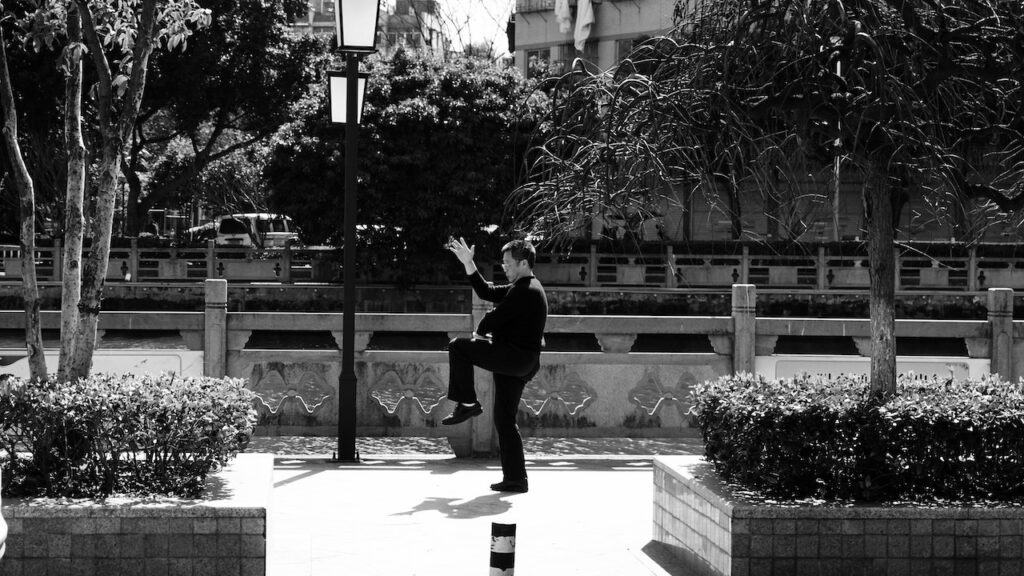Living like a digital nomad is something that is sold to us as an alternative, rewarding, and fun lifestyle. In many ways, the nomad or expat life is all those things and more. But it does have it’s difficulties, and often these things are sort of glazed over.
If you are planning to live like a digital nomad or an expat I have some tips and advice for you. What are some soft skills that you can develop that will help you become a better and more well rounded expat?
Why the focus on soft skills? Being a nomad of any kind means you will need some kind of hard technical skills. Perhaps you work in oil and you have to move to a new plant? Perhaps you are a diplomat waiting for your next post? Or maybe you are a savvy entrepreneur looking to expand your business.
Unfortunately, I can’t advise you on the technical side of any of these things. I can’t teach you how to be better at those jobs. But what I can do, is teach you how to be most prepared for life on the move. I can share skills that span a number of careers and personality types; but they will all make you better equipped to handle the nomad lifestyle.
Flexibility

An ability to change and pivot under shifting circumstances.
The nomad life is not necessarily good for people who crave structure and stability. Do you find that your faculties of understanding go out the window at the slightest inconvenience or change in plans? I’d highly recommend reconsidering the expat experience. You could also use this as an opportunity to learn, however! If you know this will be a difficult thing for you, but you wish to take it on to challenge yourself and become better; all the power to you and welcome to the blog!
The nomad lifestyle automatically assumes you will need some tolerance to inconvenience, as well as an ability to function under pressure and changing circumstances. But the best part about these things is, they can be learnt!
Some nomads, myself included, get it wrong when we talk wanting structure and needing to adapt to change. You can’t be completely without structure, all the time. And similarly you cannot simply react to everything, all the time.
When your flight gets delayed, or your luggage stranded, or perhaps when a global pandemic completely upheaves your plans… that is the time for flexibility and embracing change.
When you have settled into your house, and are looking for the best ways to utilize your time in a new location… that is the time to embrace structure and start making some plans.
Flexibility, in the many interpretations it presents itself, is imperative for the digital nomad or expat!
Communication and Language Skills

Communication doesn’t mean just words, and language skills doesn’t just mean learning new languages.
You need to have good communication skills if you are to survive as a nomad. Language skills doesn’t necessarily mean, you need to be good at learning languages. Nor does learning a language need to be a roadblock to the expat experience.
Of course, if you are moving to a place that doesn’t speak your native tongue, there will be exponential benefits for learning the language. However you don’t need to, and if it’s too much pressure, you can always start learning once you’ve settled down anyway. There are many expats who get by learning none or little of their country’s native language. They find creative ways to bridge the communication barrier.
I have written on language learning on here many times; it’s a small passion of mine. If you would like to read about learning via immersion, and making your lifestyle about learning languages, check out my article here.
The need for communication skills can appear in a variety of ways.
- You need to learn how to communicate with your family in a way that does not make them scared or worried for your safety while you are on the move.
- You need to learn how to communicate with your friends and loved ones, since there may be differences in time-zones and the feasibility of face-to-face communication.
- And of course you need to be able to communicate well at work; managing the different levels of a workspace and any potential border, time, and language barriers.
Communication is something that if you are seeking a nomadic lifestyle, you may already be very good at. It is just a journey of improvement and you will notice that while the faces may change, their feelings and their problems may not. So good luck and keep learning!
If you have some more specific goals for your language learning journey, I have an offer for you. Check out the bottom of the page for more details!
An Ability To Reflect

Life moves along, almost unforgivingly, at whatever pace it chooses. It doesn’t wait for you.
As digital communication develops, and so do digital distractions, it feels like time is moving faster than it ever has.
Because of this, it’s ever important for us as expats to have the ability to slow down, reflect, and live in the moment. There will be many times, along the nomadic journey, where you think about the choices you have made. Was this the right path to choose? What will my next step be?
Your brain and your heart will struggle and tug at you when such feelings come up. It’s important to not just acknowledge these feelings. You also to give yourself space to allow these feelings to express themselves. And you need to have methods and ways to work through these problems.
In that way expatriates require the ability to think and resolve the storm of ideas and emotions that swirl around inside us. You can practice this wherever you and whenever you read this. Start taking time out to think about those big scary thoughts you’ve been putting under the rug. Make specific time slots available simply to breath, think, and exist in the moment.
Most recently, I have found reading fiction a particularly good outlet for exploring your feelings. It is easier to come face-to-face with scary ideas when there is some paper, or a fictional character between them and you. If you’d like to read my thoughts on the benefits of reading fiction for nomads; check out my article here.
An Open Mind

Sometimes all you need, is the ability to laugh at things.
On your journey as a nomad, you will experience things and meet people that just make you go “What?!”. You will be left confused, upset, angry, or standing there just a bag of mixed emotions. What is left for you to do? Sometimes all you can do, is laugh it off!
As I travelled with my wife, I learnt how to turn not having a good data-plan from a negative, into a positive. If you want to read how I learnt to enjoy the moment and reduce my desire to be constantly online, check out an article I wrote for NOSTALGIACS!
Keeping an open mind while on the move means many things. You’ll be dealing with a lot of “maybe”s.
- Maybe your perceptions of your new home city were wrong?
- Maybe you thought there’d be your favourite brands, fast food, or social activities?
Being open minded also means accepting, or at least understanding, that there are different ways to do things. And the most correct one, is the one that works best for the people.
This is what makes learning about and meeting new cultures so interesting. You will find people who eat differently to you, display affection differently to you, and prioritise things differently to you.
When working as part of a multi-cultural team, you will definitely experience this! You will ask why people don’t do things the same way you do, or why there seems to be some sort of barrier between you and your team. Someone says something, yet it is interpreted in a completely different way!
You need to be open minded to these different approaches and new experiences. It is not to say that now you need to completely bend to the will of the city or people you are staying with. However, you can begin to remove the knee-jerk reaction that happens when you encounter new problems, and start working on what really matters; that is, working together and towards your common goal.
Sometimes, a little humour will help you get there too. The ability to laugh at things; even if it was something terrible, will help you not only get over those problems faster, but might also help you interact better with locals too.
There is a lot to consider when it comes to healthy and beneficial mindset for travel. I have made a list here, and if you’re interested I’d highly recommend checking this post out!
The Willingness To Try!

“See any detour as an opportunity to experience new things.” – H. Jackson Brown, Jr.
What is one thing that sets nomads and expats aside from others? What is the thing that makes them decide to leave the familiar and travel across the world? It is an open approach to new things and a willingness to try them.
This may sound easy but it’s actually something that can only really be built up over time. Through lots of exposure.
It takes a specific kind of person, and mind, to look at detours on the pathway and see them as a potential to learn new things. It’s funny how even though we have moved to a completely new environment, we still want everything to be like how it was back home. When you are living on your own, in a completely new place, you may have to make some changes to your lifestyle. What harm can trying new things do?
Our past experiences are the places where we learn to tone down this muscle. Where we learn that maybe new things aren’t always great. Perhaps in the past, when we were younger, we were more than happy to put ourselves out there. We didn’t mind trying new things because we still possessed a sort of optimism for new things. Later on we learnt how to value new things. If they didn’t provide the results we wanted, or especially, if they made us look stupid, we learnt to not do them.
So something we can do is try and go back to that younger self. The self that wanted to try new things, and be creative with it. After all, if there are new foods, different routes to work, and new experiences to be tried; we are the ones at a loss if we never try them.
When we learn to make decisions without much background information, we become better and more creative decision makers. I learnt a lot from this blog, about the skills of an expat on the move. Check it out!
A Never Give Up Mindset

In the face of failure, do you push on? Or do you hide?
The last thing that an expat needs is a doggedness and tenacity to keep pushing through failure. Ok, so you really wanted to try that new thing from the previous point. But then you failed, yes people did look at you, then what?
Whether you choose to try again or hide back amongst what is comfortable will dictate how your expat experience will go.
You can only become good at something, and confident in your skills, when you have done it too many times to remember. So never just give up after the first try. As hard as it is, you will only succeed at what you want to be when you try over and over again.
There will be times when you are misunderstood at the supermarket. When you lose important documents or items. And there will even be times when you get scammed. There were for me, I’ve written about it extensively here. But the question is what happens after?
The big thing is, how do these negative experiences affect your outlook? Do you take these as instances to learn? Or do you let them defeat you?
No matter what things happen to you, or how crazy the people are you meet, you can learn from that experience. You can take bad experiences on your nomad journey and turn them into something that will benefit you.
If you’ve reached the end of this article, firstly thank you. But you are probably interested in the tools to reach your specific language goals. And what this special offer is that I have for you, dear reader.
One of the things that finally helped things click with my Turkish studies was taking things at my own time with a private tutor. Italki is one of the most popular, and best ways to learn a wide selection of languages, with an even wider ranger of teachers.




